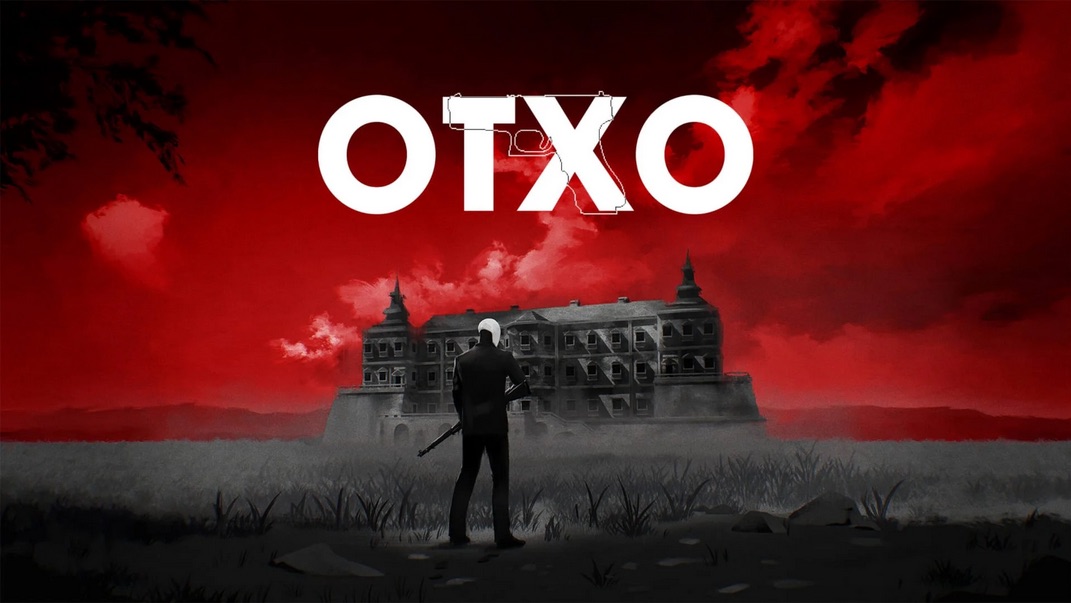
Hotline Miami was a rare kind of indie game that achieved cult status organically. Its word-of-mouth success spread like herpes at Burning Man, capturing the zeitgeist of the rising synth-wave trend. The lurid and intense pixel art, compounded by the pounding and infectious music, provided the perfect backdrop for the game’s neck-breaking, twin-stick action, and visceral gunplay.
With Hotline Miami and its sequel in the rearview mirror, fans took it upon themselves to build upon the foundation. One such project was Midnight Animal, a mysterious project that was given the blessing of the Hotline Miami developers and was seen as a spiritual sequel. Due to various circumstances, Midnight Animal was never completed, but a lot of its attributes have manifested in OTXO.
Twin-stick overhead action offers undeniable appeal. Many indie titles have chased the magic of Hotline Miami, but OTXO feels like it comes closest to capturing what made it work. Where does OTXO get things right and how does it fare on Nintendo Switch? Find out in our OTXO review!
OTXO
Developer: Lateralis Heavy Industries
Publisher: Super Rare Originals
Platforms: Windows PC, PlayStation 4, PlayStation 5, Nintendo Switch (reviewed)
Release Date: March 28, 2024
Price: $14.99 USD
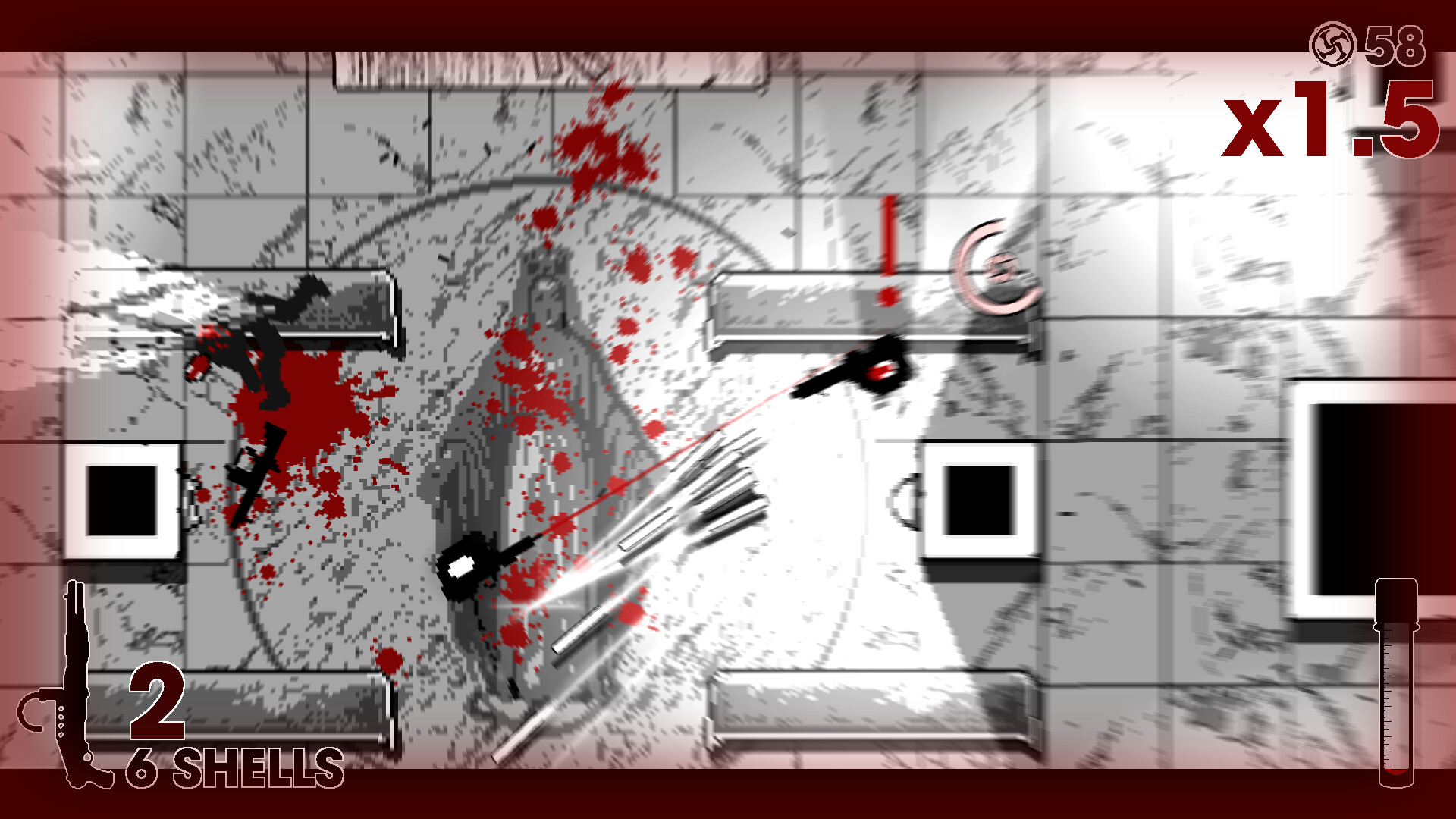
OTXO instantly makes a powerful impression with its stark black, white, and red imagery. The story feels like a half-remembered puke dream where you can’t shake the sweat and every moment feels ominous. Every character you encounter feels like they know more than you and are guiding you down a path of terrible destruction due to the cryptic dialogue.
The setting is pristine, yet classy. Everywhere you look is polished white marble tile, glistening ivory columns, and snowy leather furniture. The pixel art depicts most characters dressed in fine suits and featureless masks with some having red accents. If Hotline Miami was inspired by films by Nicolas Winding Refn and Michael Mann, then OTXO is seemingly inspired by the John Wick movies if they operated on dream logic.
The story of OTXO is hard to describe because of how abstract and vague it is. Something is going on but it’s barely expressed to the protagonist who is deliberately kept in the dark. All you need to know is that the mysterious mansion is supernatural and he is on some kind of bloody rampage to possibly save his lover and that everything is meant to be symbolic… maybe.
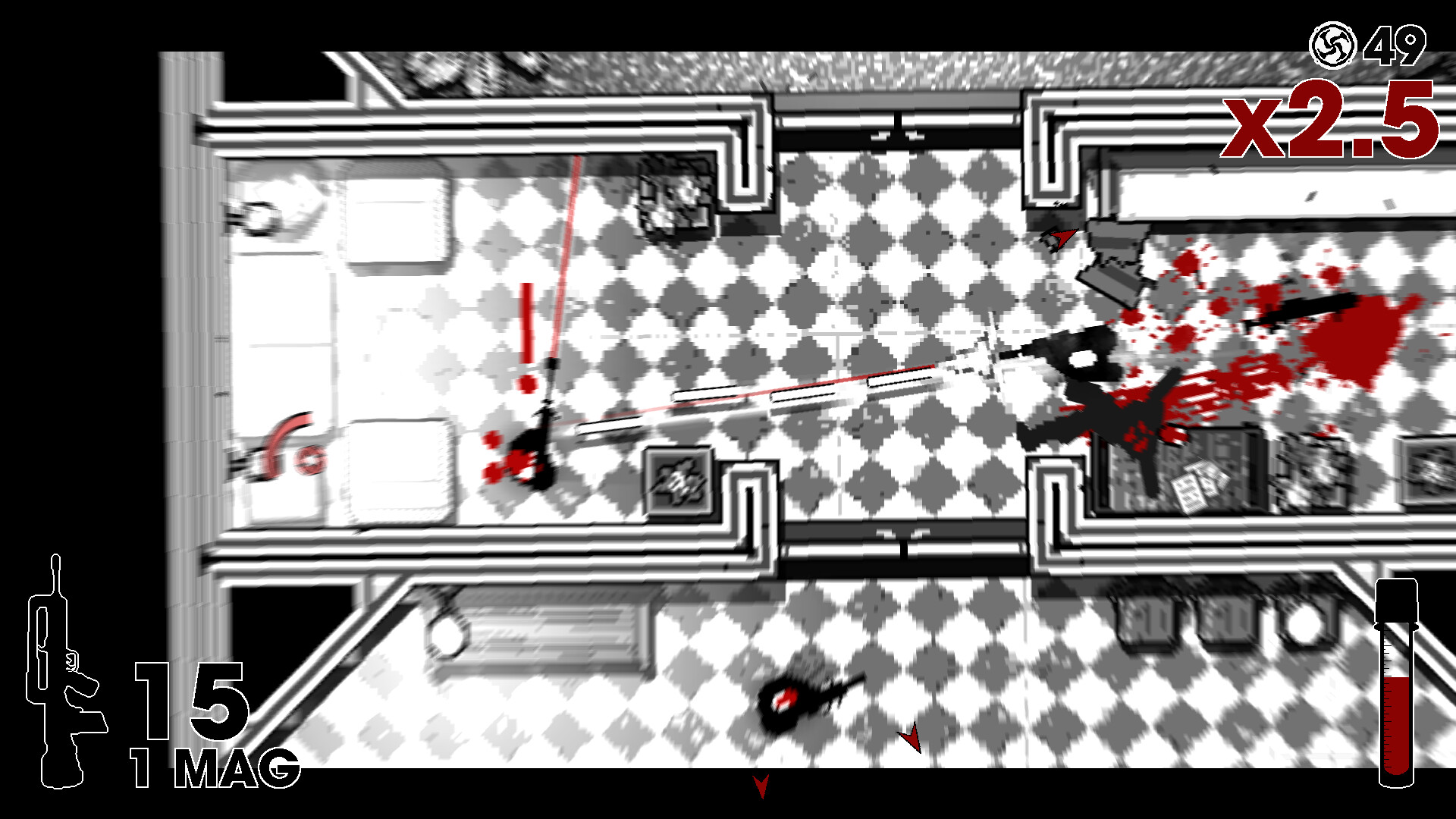
The style of the storytelling is very much on brand with the forboding flavor seen in the Hotline Miami games. Some crudely drawn character portraits look like they were traced, and always feel like they are leading you on. Not that this is any concern to the player because the only thing that matters is to shoot your way through randomized floors and paint the white rooms red with the insides of anything that moves.
OTXO wastes no time in setting gamers loose in a winding and ever-changing mansion full of armed men in suits. The randomized levels offer enough variety in their layouts that players will always feel like they need to improvise on the fly. There is no settling or getting comfortable and the game consistently keeps the pressure on at all times.
Just like Hotline Miami, OTXO focuses on clearing rooms of enemies. You’ll build a similar combo meter and rely on cover and door-smashing tactics to eliminate unsuspecting sentries. Most weapons are acquired on-site from slain foes and the intense music drives the player towards oblivion.
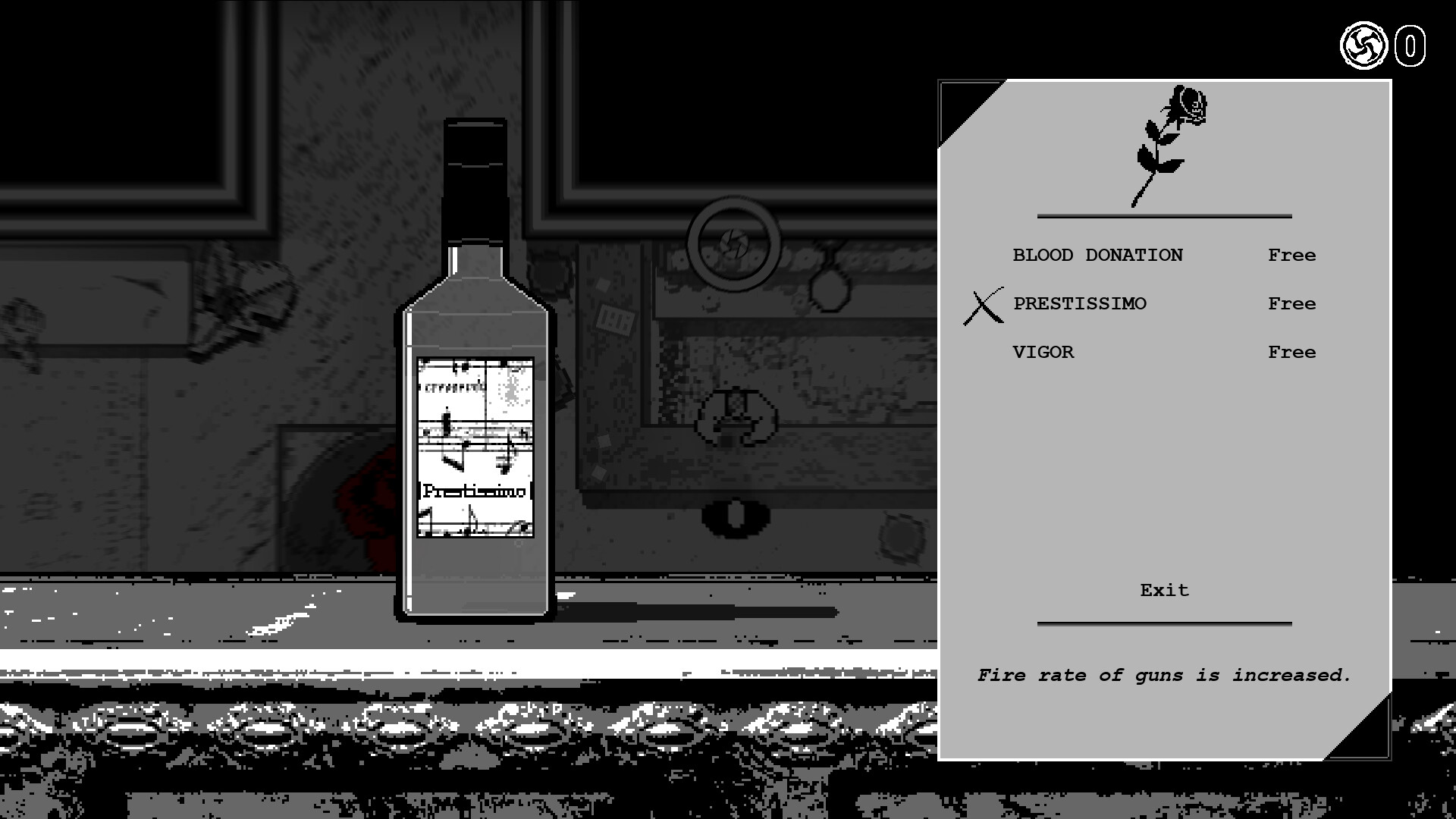
What makes OTXO interesting is how it isn’t like Hotline Miami. The protagonist does not die in one hit but rather has a life bar. This is a crucial difference because OTXO is a much longer and more brutal gauntlet with many more variables to account for. While you could dodge roll in Hotline Miami 2: Wrong Number, it was only possible in a few levels as a specific character – in OTXO, expect to rely on the iframes of rolling to conserve HP as much as possible.
The weighty gunplay is different enough where it counts. Bullets are much bigger and easier to read which is helpful since OTXO is mostly black and white. It would have been easy for this game to become an unreadable and headache-inducing mess, but the artists were thoughtful enough to balance the contrast to prevent eye strain.
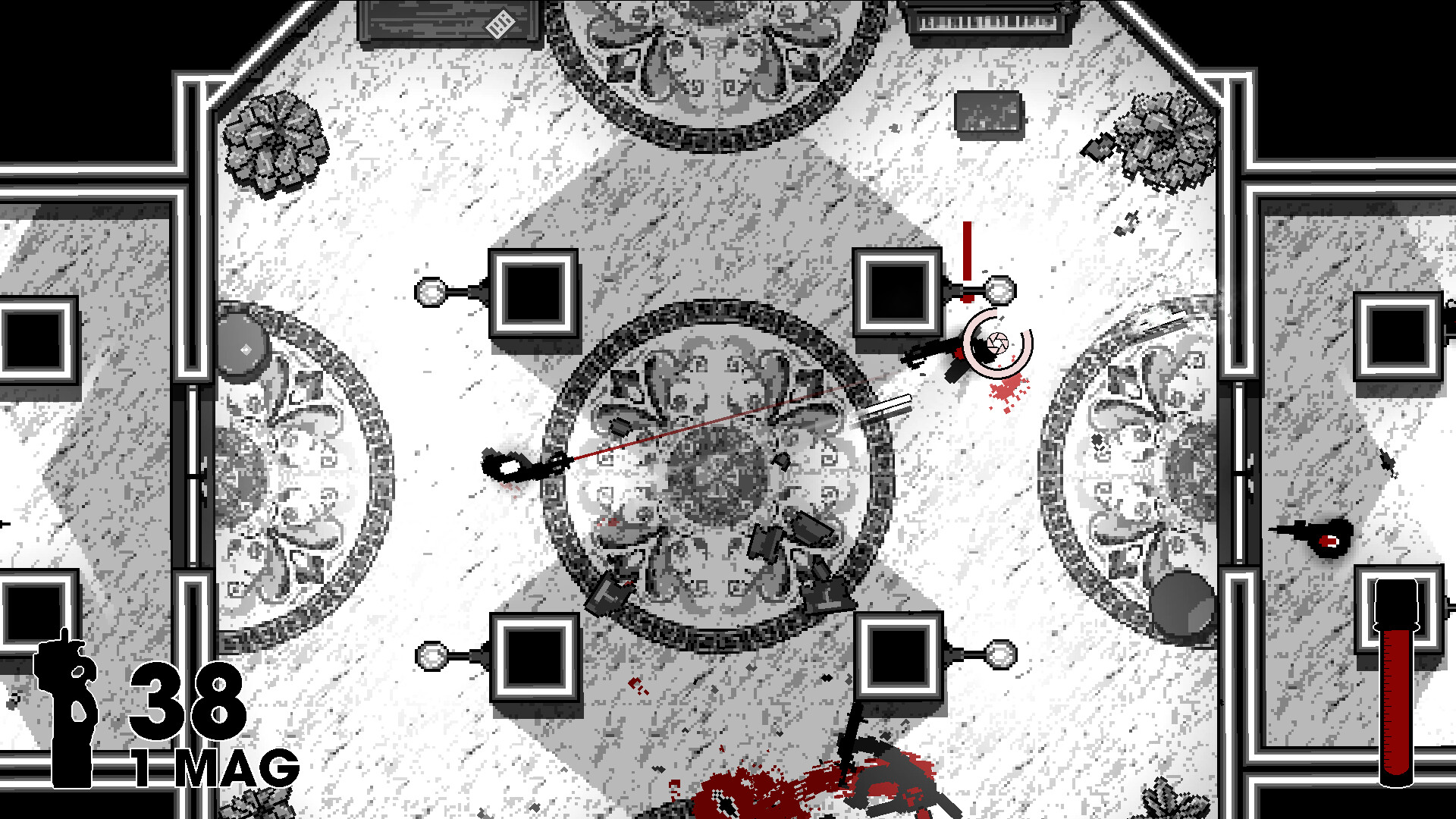
Another key flourish that makes OTXO stand out is the Max Payne-like slow-mo feature. The crosshair has a gauge around it that can be spent to slow the action down to make instant and precise shots to get a beat on foes. The gauge refills when stringing a combo and when in the hands of a skilled player, it becomes feasible to keep slow-mo activated for lengthy durations. This in turn feeds into the combo which is stylish-looking and very fun.
By far, OTXO‘s most distinct feature that separates it from being a Hotline Miami imitation is the rogue gameplay. The randomization and power-ups add an addictive layer to the chaos. The action feels less scripted and unrestrained – as if anything can and will happen.
The combo system is not just for score. It pays out and the money earned can be spent on alcoholic beverages which function as upgrades or perks. A lot of these are not useful or some can be boring as a basic stat boost. The more interesting drinks will give you an AI partner or allow two-handed guns to become one-handed for dual-shotgun action.
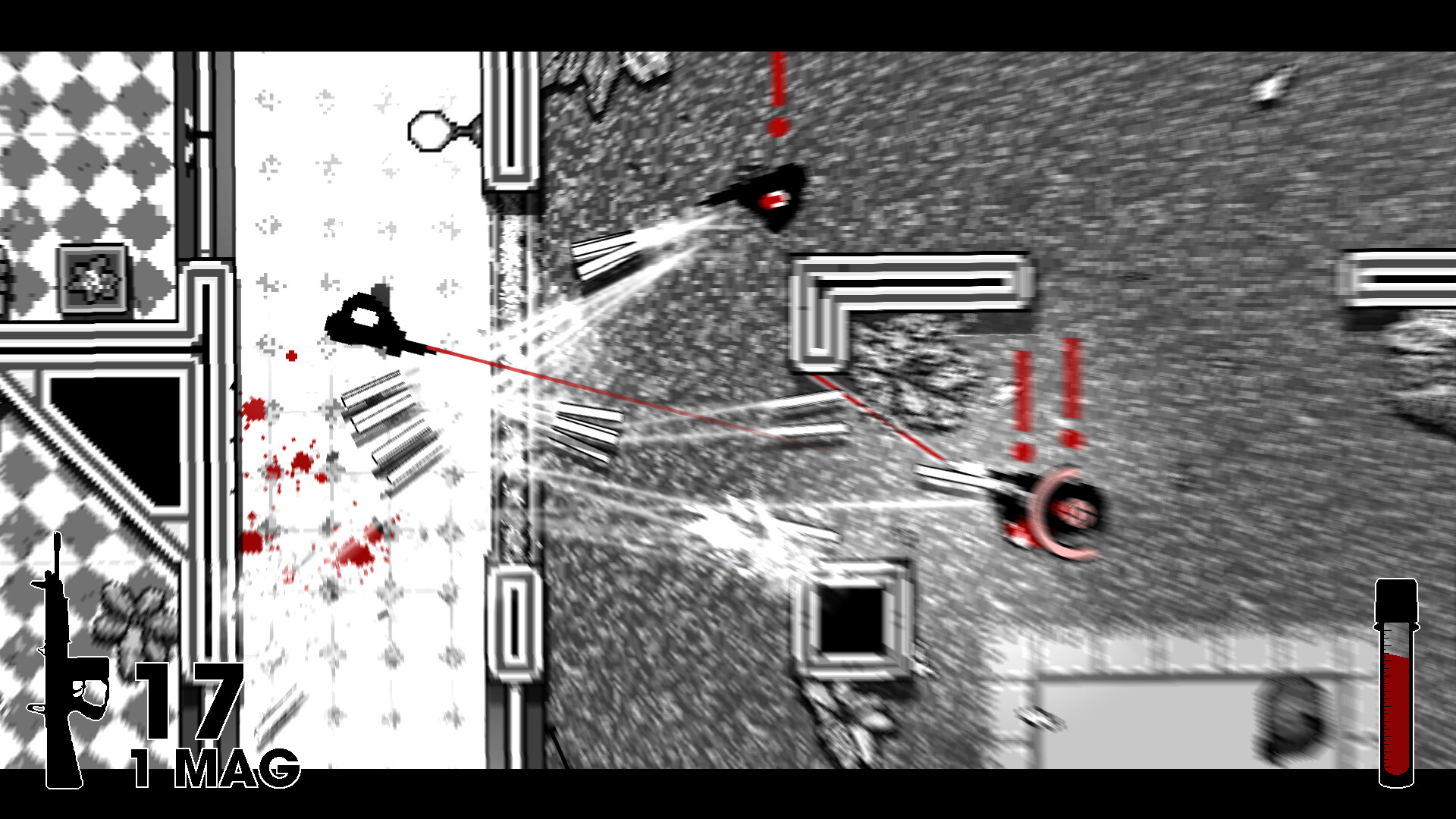
The upgraded weapons barely amount to anything and feel more like they waste money. The most notable difference in a more advanced weapon is that it might hold more ammo. There are no unusual ammo types or bizarre weapons; only more variations of handguns, automatics, rifles, or shotguns which all feel like the ones you first encounter.
Despite the upgrading system feeling like an afterthought with a disappointing lack of vision, OTXO manages to be a thrilling twin-stick action game. Some things could be better, like how the Nintendo Switch version has a very noticeable input delay when moving around. The protagonist ends up feeling a bit sticky and while it is still very playable, it was always a minor distraction.
Respawning is also a lot more drawn out now since OTXO has to do the math to generate the levels. This makes the action feel less immediate than the likes of Hotline Miami. Expect to be desperately eager to retry a run after dying from a savage boss battle, but only to wait through a surprisingly long load time.
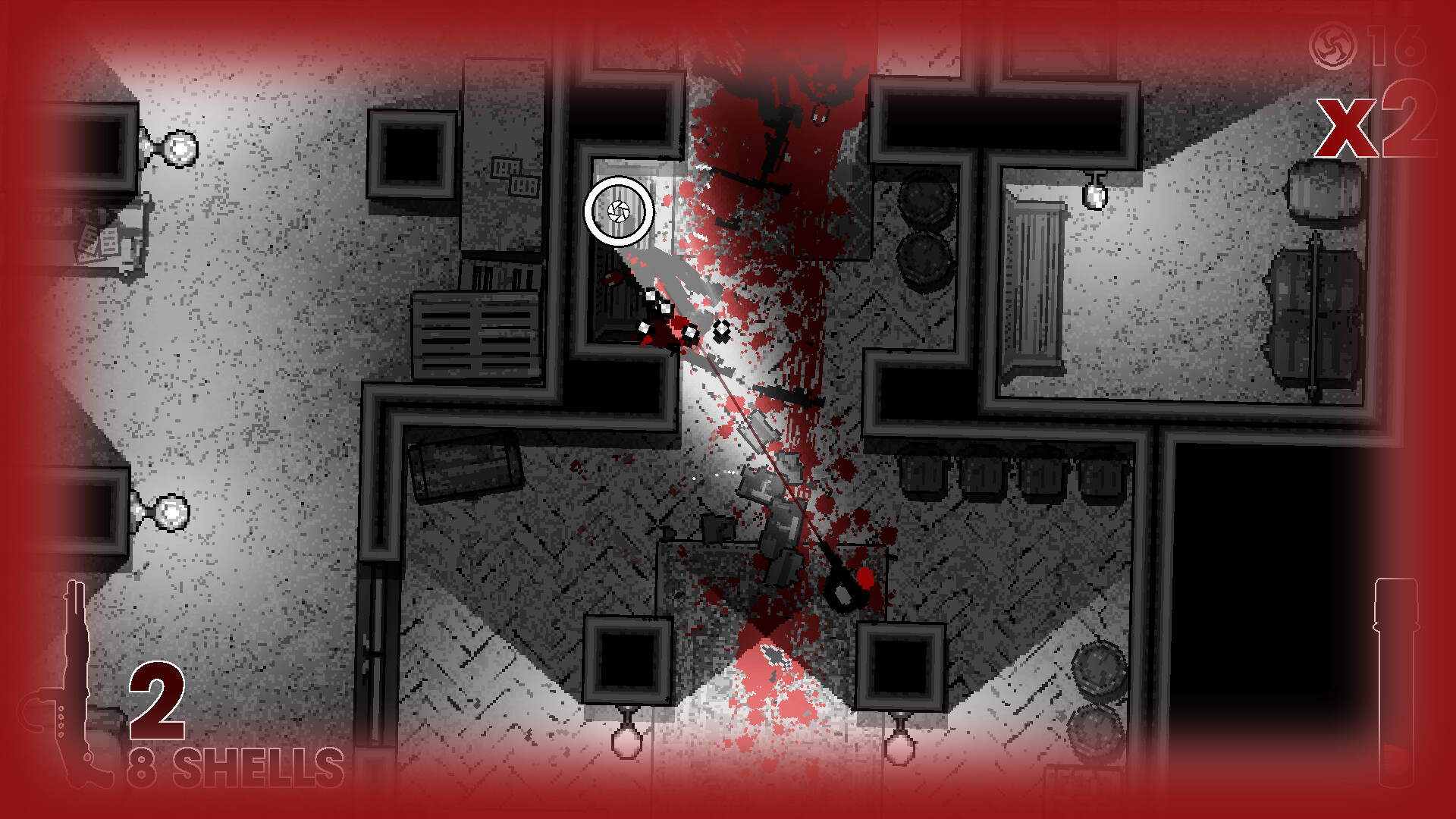
While a worthy spiritual successor, OTXO lacks the same underground charm that propelled Hotline Miami to success. Given the time elapsed since the Hotline games, OTXO feels like it could have benefitted from further refinement. With significant advancements in game design, some of the sloppier elements make it seem more like it came out around the same time as the Hotline series. Oddly, something so recent feels so behind.
OTXO was reviewed on Nintendo Switch using a code provided by Super Rare Originals. You can find additional information about Niche Gamer’s review/ethics policy here. OTXO is now available for Windows PC (via Steam), PlayStation 4, PlayStation 5, and Nintendo Switch.